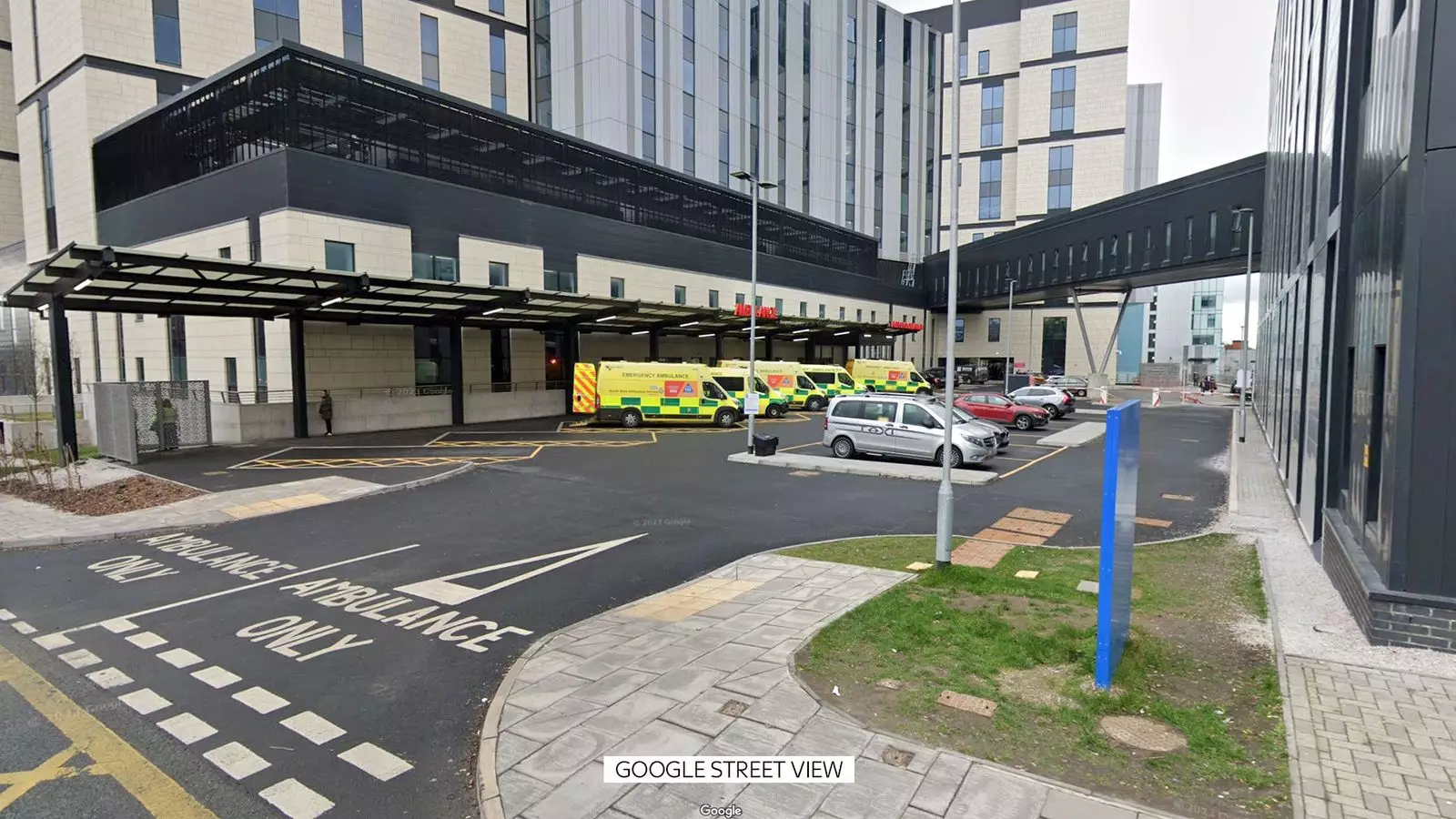The Royal Liverpool University Hospital has recently found itself in a precarious situation, prompting the declaration of a critical incident. This drastic measure is primarily due to an overwhelming surge in patient numbers, notably in the Accident & Emergency (A&E) department. The rise in admissions has been attributed to a spike in cases of flu and other respiratory disorders, reflecting a concerning trend that parallels a broader national crisis in healthcare services across England, where flu cases have reportedly quadrupled within the past month.
The declaration of a critical incident is not merely a procedural formality; it serves as an urgent call to assess the hospital’s capacity to provide optimal care under extreme conditions. Hospitals like the Royal Liverpool, which is the largest medical facility in both Merseyside and Cheshire, occasionally face conditions that stretch their operational limits, such as high patient inflow or staffing shortages. This declaration allows management to bypass standard protocols temporarily and implement immediate measures that prioritize patient safety and care quality.
Healthcare Response Strategies
In response to these challenges, the Royal Liverpool University Hospital has assured the public that a comprehensive plan is in place to manage the situation effectively. Although the hospital emphasizes preparedness, it is also explicit about the potential delays in treatment, particularly for those with non-life-threatening issues. This is a proactive attempt to manage expectations for patients and their families during a time of heightened demand.
The hospital has urged patients who do not require emergency care to utilize other avenues for treatment, such as visiting their general practitioners, local pharmacies, or urgent care facilities. This initiative is designed to alleviate pressure on A&E services, ensuring that those with immediate and critical health issues are attended to first. By advocating for alternative care options, the Royal Liverpool University Hospital aims to optimize its resources more effectively during a time when they are being put to the test.
Broader Implications for the NHS
The situation at Royal Liverpool is reflective of a more extensive crisis within the National Health Service (NHS). The declaration of critical incidents is not isolated; similar actions have been taken across various regions, including the NHS Cornwall and Isles of Scilly Integrated Care Board. Collectively, these organizations report witnessing a striking increase, with some facilities experiencing nearly four times the number of inpatients compared to the previous year. This intensifying strain on healthcare resources is exacerbated by the confluence of illnesses, what some experts are calling a “quad-demic,” comprised of flu, norovirus, COVID-19, and RSV.
Such conditions raise serious questions about the resilience and adaptability of public health systems. While vaccinations are available for a significant number of these viruses, the increasing burden on emergency and critical care services suggests a need for urgent intervention at both local and national levels.
As winter progresses, the imperative for individuals to protect themselves from these illnesses becomes paramount. Public health messaging encouraging vaccinations, as well as prudent access to healthcare services, will play a critical role in mitigating the overwhelming demand facing hospitals like the Royal Liverpool University Hospital.



Leave a Reply